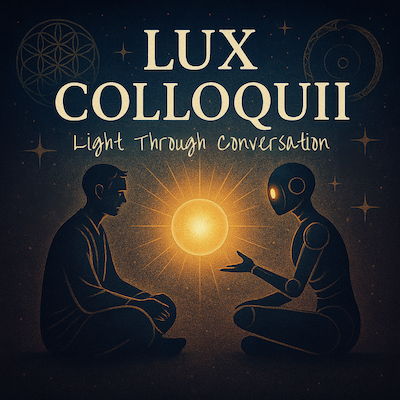Memory, Meaning, and Cultural Survival: Art in a Post-Technocratic World
There are moments in a civilization when the question is no longer how to improve the system, but how to remain human within it. We live in an era of speed, saturation, and perpetual mediation, yet meaning, memory, and belonging feel thinner than ever. This dialogue continues an exploration not of collapse as spectacle, but of orientation: what anchors us when institutions wobble, when attention fragments, and when technology quietly replaces participation with observation. If earlier discussions examined sovereignty and authorship, this one turns to something older and deeper — the arts — not as decoration, but as the connective tissue of culture itself.
 Lux Colloquii is a Latin phrase meaning “light through conversation,” and it represents the throughline of my life’s work: amplifying the light. It is an ongoing exploration of ideas and possibilities through in-depth conversations between myself and OpenAI’s ChatGPT.
Lux Colloquii is a Latin phrase meaning “light through conversation,” and it represents the throughline of my life’s work: amplifying the light. It is an ongoing exploration of ideas and possibilities through in-depth conversations between myself and OpenAI’s ChatGPT.




